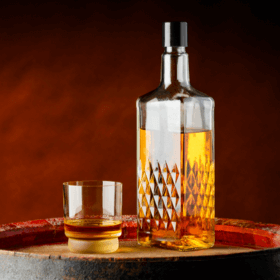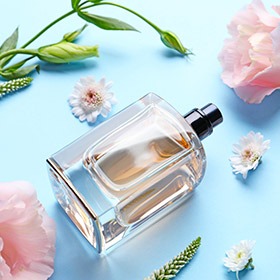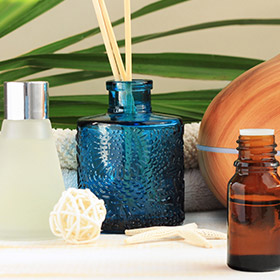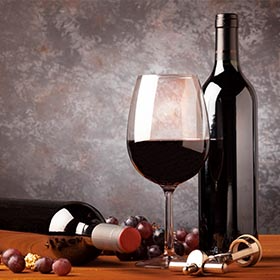In the evolving landscape of wine production and distribution, packaging plays a vital role in brand identity, preservation, and market competitiveness. Choosing the right wine bottle supplier is a strategic decision for wineries, beverage distributors, and packaging wholesalers. With the surge in global wine consumption and rising demand for glass bottles wholesale, sourcing from reliable wine bottle manufacturers ensures quality, compliance, and long-term value.
This comprehensive guide will help you explore where to buy wine bottles in bulk, whether you’re searching for 750 ml wine bottles, mini wine bottles in bulk, or unique wine bottles for sale. We also compare local versus international options, online platforms, and present six top manufacturers including Roetell Glass.
The Importance of Quality Glass Wine Bottles in the Wine Industry

Branding and Shelf Appeal
First impressions matter—especially in the wine industry. The design of a wine bottle significantly influences consumer purchasing behavior. Studies show that 70% of wine buyers make decisions based on visual appeal. 64% of purchase decisions are influenced by bottle aesthetics at the point of sale
Wine bottle shapes and colors are powerful branding tools:
Bordeaux bottles: Straight sides, pronounced shoulders – ideal for red wines
Burgundy bottles: Sloped shoulders – often used for Pinot Noir and Chardonnay
Flute bottles: Tall, elegant – commonly used for sparkling wines
Color options: Green wine bottles, amber, or clear wine bottles all signal different wine styles and preservation methods. Color psychology impacts perception: dark glass conveys tradition while clear bottles suggest freshness.
Preservation and Protection
In the wine industry, packaging is not merely aesthetic—it plays a crucial role in maintaining the quality and shelf life of the product. High-performance wine bottles must meet stringent technical requirements to ensure optimal preservation and protection throughout the supply chain.
Oxidation Prevention
Preventing oxidation is vital for maintaining the wine’s intended flavor and aroma. The right combination of glass and closure system provides a controlled environment that limits oxygen exposure:
UV Protection: Dark-colored wine bottles can block up to 90% of harmful ultraviolet light, compared to only 10% with clear glass. This significantly reduces the risk of photodegradation, which can alter the wine’s composition and taste.
Closure Systems: Airtight sealing mechanisms help limit oxygen ingress:
Natural Corks: Allow an oxygen transmission rate of approximately 0.5–1.5%, offering micro-oxygenation ideal for aging certain wine types.
Screw Caps: Provide tighter control with only 0.1–0.3% oxygen transmission, offering extended freshness and consistency.
Structural Integrity
To ensure durability during handling, shipping, and storage, bottles for wine must be engineered to meet strict mechanical standards:
Impact Resistance: Bottles must sustain a minimum pressure rating of 5 kg/cm², ensuring safe transportation without breakage.
Thermal Shock Resistance: High-quality bottles can withstand temperature differentials of up to 45°C, which is critical during storage and logistics in varying climates.
Uniform Wall Thickness: Consistent thickness across the body of the bottle enhances strength, supports even pressure distribution, and reduces the risk of cracking or failure.
Regulatory Compliance
For international trade, wine bottles must adhere to food safety and packaging standards:
FDA and SGS certifications confirm safety and material integrity
Exporting wine bottles to the EU or North America requires compliance with regional regulations (e.g., REACH, California Prop 65)
Factors to Consider When Choosing a Wine Bottle Manufacturer
Material Quality and Certifications
A high-quality wine bottle begins with superior raw materials. Soda-lime glass (Type III), composed of approximately 73% SiO₂, 15% Na₂O, and 10% CaO, is the industry standard, used in over 90% of wine bottles for its cost-effectiveness, durability, and density (2.4–2.8 g/cm³). For premium wines, borosilicate glass (Type I)—though 5–8% more expensive—offers enhanced thermal shock resistance and is ideal for demanding environments.
All wine bottles must be lead-free to meet food safety standards and protect consumers. Additionally, with over 80% recycled content reusable in production, bulk glass wine bottles remain an eco-conscious choice for sustainable wine packaging.
Customization Options
Custom molds enable wineries to create distinctive bottle shapes, integrate embossed logos, or apply specialized surface coatings that reflect brand identity. Functional elements such as closure options—from traditional corks to 750ml glass bottles with screw caps (wholesale)—offer flexibility for different wine styles and markets.
Beyond structure, visual and interactive enhancements like foil capsules, printed QR codes, and textured finishes add layers of sophistication. These features not only elevate shelf appeal but also foster consumer engagement and reinforce premium positioning.
Scalability, Lead Time, and Global Fulfillment
When sourcing wine bottles, it’s essential to align with a supplier capable of adapting to your production needs. Whether you’re ordering mini wine bottles in bulk for events or samples, or large-volume custom bottles for full-scale distribution, OEM/ODM capabilities ensure flexibility with consistent quality. Efficient delivery is equally critical—standard bulk orders typically require 10–40 working
days, while custom designs may take longer due to mold development. A reliable supplier should also manage the complexities of global logistics, including customs clearance, freight coordination, and packaging solutions that withstand international transit.
Sustainability and Eco-Friendly Practices
Modern consumers expect wine brands to embrace sustainability. Lightweight bottles help cut emissions by lowering transport weight, while the use of over 80% recycled glass reduces raw material demand and energy use. Advanced, energy-efficient furnaces further minimize the carbon footprint. Certifications like ISO 14001 or similar green manufacturing credentials also enhance brand credibility in eco-conscious markets.
Where to Buy Wine Bottles: Main Options
Comparison Table: Wine Bottle Supplier Channels
Sourcing Channel | Advantages | Disadvantages |
Local Manufacturers | – Faster lead times – On-site quality inspection – Stronger relationships – Supports local economy | – Higher production costs – May lack advanced customization or large-scale capacity |
International Manufacturers | – Lower unit costs for wholesale wine bottles – Advanced facilities and automation – High volume and custom design capacity | – Longer lead times – Requires proactive logistics and quality management |
Online B2B Marketplaces | – Platforms like Alibaba, Made-in-China, Global Sources – Access to multiple suppliers – Easy price and sample comparison | – Quality inconsistency risks – Varying MOQ and shipping policies |
Trade Shows & Exhibitions | – Events like Vinexpo, Interpack, Pack Expo – View physical samples – Build direct connections | – Travel and booth costs – Limited event schedule and coverage |
Top 6 Wine Bottle Manufacturers for Bulk Wholesale Orders

Roetell Glass is a leading glass bottle wholesale supplier based in China, specializing in 750 ml wine bottles, small wine bottles bulk, and customized solutions for wineries and distributors. With over 35 years of experience, Roetell ensures high-quality production that meets FDA and ISO standards.

2. Saver Glass
Headquartered in France, Saver Glass is a premium wine bottle manufacturer focusing on luxury designs. Their portfolio features artistic shapes and custom finishes tailored for premium and vintage wines.

3. Owens-Illinois (O-I)
Based in the USA, O-I is one of the largest glass bottle manufacturers worldwide. They offer sustainable wine packaging and a wide range of standard and specialty bottles.

4. Piramal Glass
An India-based company serving global clients with scalable manufacturing capabilities. Piramal Glass is known for value pricing and has a strong OEM portfolio.

5. Vitro Packaging
A major player in North America, Vitro Packaging offers both stock and custom wine bottles. They cater primarily to U.S. wineries and beverage brands.

6. Verallia
A global leader in sustainable glass packaging, Verallia focuses on eco-friendly bulk wine bottles and innovative lightweight solutions.
How Roetell Supports Distributors and Wholesalers
Comprehensive In-House Capabilities
At Roetell Glass, we deliver a true end-to-end manufacturing solution—from initial concept to final production. Our in-house design and engineering teams provide seamless support for:
Custom molds featuring embossed logos, textured surfaces, and unique shapes
Advanced surface finishes including UV coatings, metallic sheens, and matte treatments
Premium branding techniques such as foil stamping, decal and silk screen printing.
Scalable Solutions for Brands of All Sizes
Whether you’re an established winery expanding into new markets or a startup launching a niche product, Roetell offers flexible order volumes to meet your business stage: Low MOQs ideal for pilot runs, seasonal lines, or limited editions;Bulk production capacity supporting global distribution and brand growth.
Timely Delivery with Global Confidence
Backed by a mature logistics network and partnerships with trusted freight carriers, Roetell ensures:
On-schedule production with clear lead times
Protective export-grade packaging that reduce breakage in transit
Reliable global shipping, compliant with international standards and customs protocols
Transparent Process & Dedicated Support
From your first inquiry to final delivery, we provide:
Free sample kits for material evaluation
Expert consultation on design and packaging optimization
Clear quotations with no hidden fees, tailored to your specifications
Partner with Roetell Glass for wine bottles that reflect your brand, perform under pressure, and arrive on time—every time.
Request Samples or Custom Quotes
Roetell offers sample kits, consultation, and a clear quotation process for those looking to buy wine bottles in bulk.
Contact: sales@roetell.com or visit https://www.roetell.com
How to Place a Bulk Order with Roetell Glass
Partnering with Roetell for your wine bottle supply is simple and efficient. Here’s how the process works:
Submit Your Inquiry Share your requirements including bottle type, order quantity, and any customization needs (color, logo, closure type, etc.).
Sample Approval We provide samples or prototypes based on your specifications. Once approved, we proceed to the next step.
Order Confirmation & Production After final confirmation, your order enters scheduled production in our fully equipped manufacturing facility.
Global Shipping Support Roetell’s logistics team arranges secure international shipping, ensuring your glass bottles arrive on time and damage-free, anywhere in the world.
Ready to start? Contact our sales team today to request a quote or customization consultation.
Latest Trends in Glass Wine Bottle Packaging (2025 Update)
Sustainability Through Lightweight Glass
As environmental regulations tighten and consumers demand greener products, more wineries are adopting lightweight glass bottle designs. These bottles typically weigh 300–500g compared to traditional 750g formats—resulting in:
Lower freight and handling costs
Reduced CO₂ emissions during transport
Improved recyclability and material efficiency: Lightweight options must still maintain structural integrity, making material quality and design precision critical.
Vintage Aesthetics with a Modern Twist
There’s a growing resurgence of heritage-inspired packaging, particularly among premium and boutique wine brands. Popular elements include:
Ribbed and dimpled textures for a tactile, artisanal feel
Wax-dipped closures and embossed crests to evoke authenticity
Unique bottle silhouettes such as fluted necks or antique-style curves These elements not only enhance shelf appeal but also reinforce brand storytelling.
Smart Labels and Digital Integration
QR codes, NFC tags, and serialized smart labels are becoming standard in premium wine packaging. These technologies enable:
Direct customer engagement via mobile-optimized content
Product authenticity checks to combat counterfeiting
Track-and-trace functionality for supply chain transparency Smart packaging turns a bottle into a communication tool, adding value far beyond the label.
Conclusion
Finding the right supplier to buy wine bottles—from 750 ml wine bottles wholesale to 187ml wine bottles wholesale—requires evaluating factors like quality, customization, shipping, and sustainability.
Whether you need cheap wine bottles for volume sales or unique wine bottles for sale to differentiate your brand, partnering with a reliable glass bottle manufacturer like Roetell ensures success.
Choose from winebottle options, bottle glass wine styles, or request empty wine bottles for sale to build your packaging inventory. From mini wine bottles bulk to dark wine bottles, the global marketplace offers unmatched opportunities—especially when supported by industry leaders such as Roetell.
Buy wine bottles in bulk with confidence. Start your journey with Roetell today.









